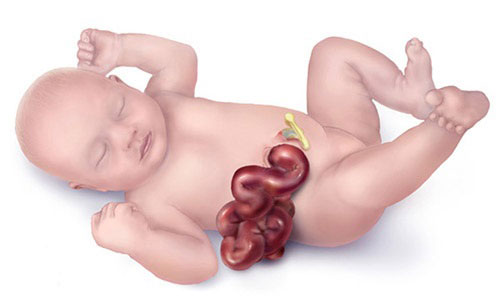Neonatal Surgery
What exactly is Neonatal Surgery?
Neonatal surgery encompasses a wide spectrum of surgical procedures performed on newborn babies.
New-born babies will require surgery if the condition is life-threatening and are often extremely rare, however, some conditions that are operated on are relatively minor problems. Some of these conditions will have been found in regular scans before delivery, while others may not be recognized until after birth or will develop in the weeks after birth.

Is it safe to operate on such young babies?
Surgery is advised only if there is imminent danger to the child or there is an anatomical problem that needs correction.
Neonatal surgery science has widely improved over the years and now babies are in expert hands.
- Appendicitis is an infection or inflammation of the appendix which may require surgery.
- Pyloric stenosis is a narrowing of the opening between the stomach and the small intestine. The opening is widened with the assistance of neonatal surgery.
- Biliary atresia occurs when the bile ducts outside and within the liver become damaged and obstructed. Bile accumulates in the liver and harms it because it cannot flow into the intestine.
- Congenital anomalies –
- Hirschsprung’s disease is a disorder of the large intestine that causes constipation.
- Reproductive diseases are surgical problems that affect the reproductive organs of a child.
- Short bowel syndrome occurs when a portion of the small intestine is missing or is not functioning correctly, resulting in insufficient food absorption.
- Congenital cystic adenomatoid malformation (CCAM) is a benign lung lesion that manifests as a cyst or mass in the chest before birth.
- Imperforate anus (anal atresia) – This term refers to a range of anorectal anomalies ranging from a membranous separation to full anus absence.
- Congenital diaphragmatic hernia – A hole in the diaphragm that causes abdominal organs to move into the chest.
- Tracheoesophageal Fistula (TEF) and Esophageal Atresia (EA) – EA and TEF are digestive system conditions. When the esophagus does not attach to the stomach, this is known as esophageal atresia (EA). TEF is a condition where the esophagus and windpipe (trachea) don’t connect correctly.
- Necrotizing enterocolitis is a terrible illness that mostly affects preterm babies’ intestines, where bacteria penetrate the intestinal wall and cause local infection and inflammation, eventually destroying the bowel wall (intestine).
- Pectus carinatum is a congenital disorder in which a child’s breast bone and ribs develop abnormally.
Gallbladder problems – Conditions such as Gallstones, Common bile duct stones, Gallbladder cancer, Inflamed gallbladder, Perforated gallbladder, Bile duct infection, Dysfunctional gallbladder, or chronic gallbladder disease are treated. - Cancer – Newborn surgery may assist with illnesses such as Hepatoblastoma (liver cancer), Neuroblastoma, Wilms tumor (kidney cancer)
Babies undergoing surgery will need a hospital stay as well as round-the-clock monitoring to ensure that any complications are treated. Your baby will need regular check-ups after being discharged from the newborn ward to monitor their development after any neonatal surgery.
Dr. Adwait Prakash is a senior Pediatric surgeon in Indore, skilled in all Neonatal Surgery procedures.
To book your appointment Call: 8889588832
